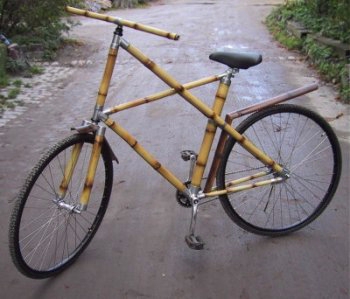
BRINQ is the home of entrepreneur and product designer Patrick Donohue, whose work focuses on high impact startups and products.
Have people found ways to make bicycles more accesible and useful to solving the world's transportation problems for the poor? Here are few interesting examples we came across: A toy designer and BRINQ advisor talked to us yesterday about his recent trip to volunteer in Nicaragua. He shared a number of observations on children there:
A toy designer and BRINQ advisor talked to us yesterday about his recent trip to volunteer in Nicaragua. He shared a number of observations on children there:
"Kids seemed more interested in clothing than toys, we met a lot of people who were much better dressed than we were but who also happened to sleep on dirt floors. Kids wanted better shoes for playing sports and most never had a pair of tennis shoes in their life. But what every child really seemed to want was a bicycle! However, most couldn't afford them."
If you have spent much time in developing countries, chances are you have seen A LOT of bicycles. I have very vivid memories of crossing through a river of bicycle traffic in Saigon (the trick is to walk slow and steady so they can dodge you) and seeing whole families on a single bike in central Viet Nam. Bicycles are the workhorses of many societies, and it's no wonder that children want the freedom and mobility bikes represent.
So this got us started on the subject of innovation for bicycles in the Base of the Pyramid. Have people found ways to make bicycles more accesible and useful for the world's poor? Here are few examples we came across (and don't forget our previous find of a bicycle that rides on water).
Brazilian inventor, Flavio Deslandes, has invented a bamboo bicycle (Bambucicleta, pictured right):
"Bamboo is a resource of immense potential. And it is strong too. What makes it possible to build bicycles from it is that it is stronger than steel when strained in the longitudinal direction, 17% to be exact."
"This is going to be a revolution: the bicycle wheel made out of bamboo. There is steel in the assemblies of my bicycles. But unlike everything else that is made out of bamboo - for instance the furniture that you talked about - the steel used here serves the bamboo, not the other way around. I use bamboo in its natural form in the bicycle. If you start bending it, drilling holes in it or you put nails or spikes into it you’ll weaken the structure”
"But I keep on researching in order to find even more replacements for the metal parts. This wheel here is one hundred percent bamboo: Rims and hub are made out of laminated bamboo and the spokes are made out of straight bamboo sticks. I also work on being able to produce pedals and pedal arms in bamboo,” Flavio says proudly.
SSAC reports an article from the Calcutta Telegraph about Dodhi Pathak, an Indian inventor of an almost all bamboo bicycle:
"Like most of the innovators, Pathak, too was driven by necessity. He didn't have money to buy even a second-hand bicycle, so he built a bicycle out of bamboo. Except for tubes and tyres, which are of standard rubber, the piston, handles and barrels of his bicycle are all made of bamboo."
"Pathak belongs to the breed of inventors who, without a laboratory or research infrastructure, and sometimes without a formal education even, have churned out valuable innovations. In addition to meeting their own needs, those inventions may turn into commercial products for the indian,and perhaps even global markets."
Could there be a market to sell bicycle-making kits? Import the chains, spokes, joints and extra parts and then just add your own frame from locally grown bamboo? Would it be cheaper than just importing the whole bike? We'll have to wait to hear back from our bamboo expert before answering that one. In the meanwhile check out AfriWheels.org and why there is no bicycle that meets the needs of Africa's poor.
Additional Stories and Links:
Past "Innovation from the Brinq" articles:
Poor People's Knowledge -- India - Innovation Central -- Building a Better ATM -- Keeping it Cool - Clay Pot Refrigeration
Comments
A Bigga Boda - XAccess' Cycle in Kenya
A Bigga Boda - XAccess' Cycle in Kenya
Originally posted to the BRINQ Workshop by Patrick Donohue of BRINQ and the Base of the Pyramid Protocol.After five months of intense work in communities in Kenya and Brazil we've got a long backlog of stories to share. So now that we've got a sh...